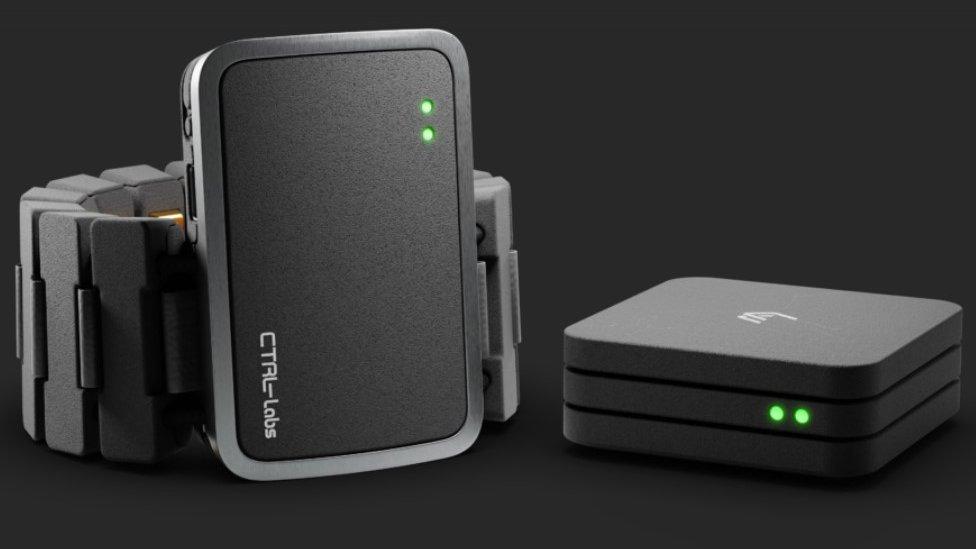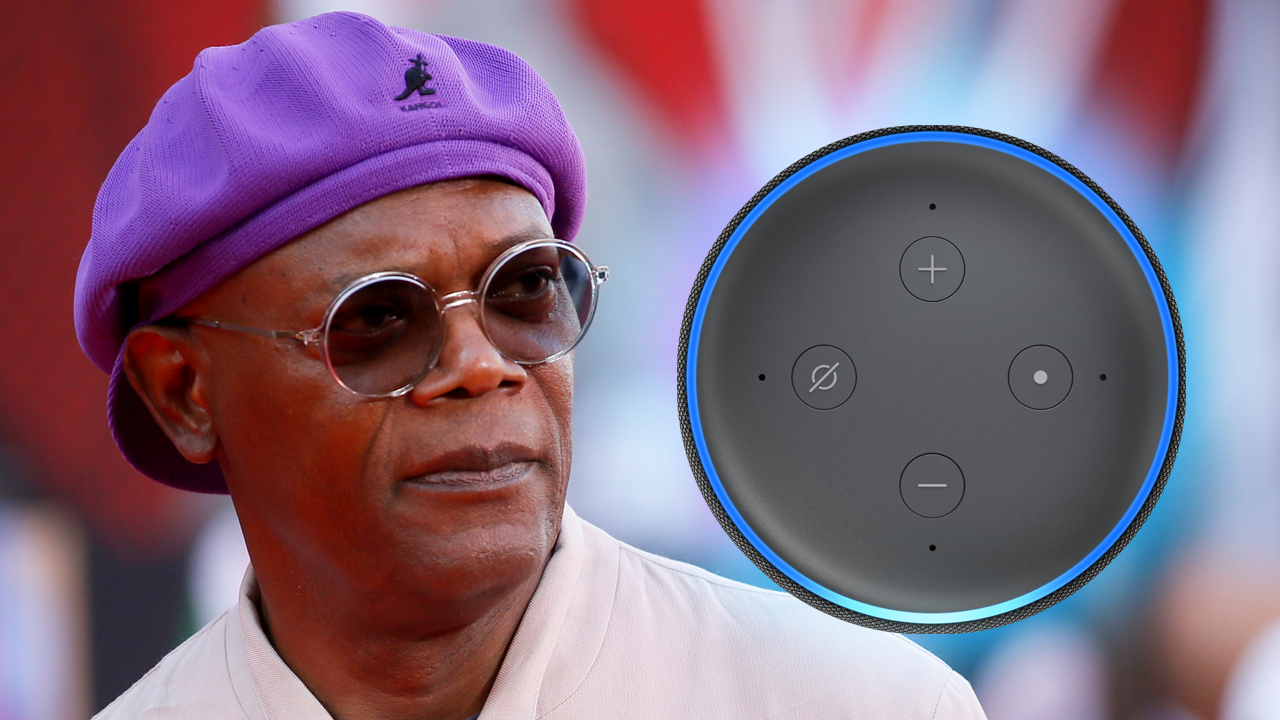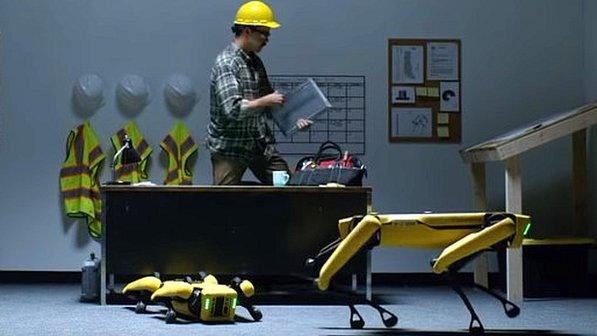Tech Tent: Facebook has designs on your brain
- Published

The current CTRL-Labs wristband is bulky and crude
It is a tiny US tech start-up which is developing a wristband that decodes signals from your brain. But now CTRL-Labs has joined the Facebook empire - and on this week's Tech Tent we explore what this tells us about a future where our brains are linked to computers.
Unveiling its purchase of CTRL-Labs, Facebook's virtual reality chief Andrew Bosworth said: "We know there are more natural, intuitive ways to interact with devices and technology. And we want to build them."
He said the company's wristband could capture your intention, so that you could share a photo with a friend "just by, well, intending to".

Stream or download, external the latest Tech Tent podcast
Listen live every Friday at 14:00 GMT on the BBC World Service
That is quite hard to comprehend but, if he is right, you can see how it might offer a powerful new way for Facebook users to interact with the social media platform - and vice versa.
Research into what are called neural interfaces, devices that interact with the human nervous system, is a hot topic right now. We've seen Elon Musk's Neuralink talking of one day helping people who are paralysed to control computers via devices implanted in their brains.
Tech Tent talks to one of the leading scientists in this field, Dr Mahnaz Arvaneh, director of the Physiological Signals and Systems Laboratory at Sheffield University. She describes what is called a non-invasive technique, where electrodes are placed on the skull, not inside the brain, to record electrical activity:
"We use these brain activities, helping people to control different devices with their minds. This device can be an assistive device, or it can be a game that can help them to improve their cognitive performance."
But how far has this technology advanced? Dr Arvaneh tells us that what seemed like sci-fi a few years ago is now coming true. In the field of healthcare we already have cochlear implants, and deep brain stimulation is now being used in the treatment of conditions such as Parkinson's disease.
She says more devices will emerge from the labs soon, though some may be 50 years away: "But neural interfaces are going to be a type of emerging technology that can significantly change our life, the way that we interact with our environment."
As with any new technology, there are concerns about how it will be used and regulated.
Is it right to use human beings as guinea-pigs in experiments that could prove damaging?
Is there a threat to our privacy as machines begin to read our intentions?
Are we going to blur the border between humans and machines if we try to augment ourselves, perhaps by uploading vast amounts of data into our brains?
Some of these ideas may be sci-fi fantasies, too remote to worry about now. But one question is much more urgent - do we want a social media giant like Facebook to play a big role in this technology?

Regulators have scrutinised Facebook's acquisition of Instagram
In 2012, Facebook bought a tiny company called Instagram, in 2014 it followed up with WhatsApp - and now some regulators are beginning to ask whether those deals which gave the social media giant access to a huge audience and vast amounts of data should have been examined more closely at the time.
Right now, CTRL-Labs is a tiny business - but arguably its technology is more significant than that of either WhatsApp or Instagram.
Tech Tent's special guest data specialist Caroline Carruthers says we need to be cautious: "A big corporation like Facebook won't do something unless it's profitable to them so it would be interesting to understand what they think they're going to get out of it. I think it's important that this technology is shared so we understand what's happening with it and why."
Earlier this month, the Royal Society produced a report on neural interfaces and the ethical challenges they could present. Artificial Intelligence is already provoking plenty of debate about the ethics of smart machines - as the boundary between humans and machines gets more blurred, the neural interface researchers can expect plenty of questions about what is going on in their labs.
Also on the podcast this week:
As Amazon unveils a whole raft of new devices featuring its voice assistant, we ask whether we really want to take Alexa out of the home and have it in our glasses or a piece of jewellery.
And the Libra cryptocurrency, backed by Facebook, hasn't exactly won a warm reception from governments and regulators. The Libra Association's Bertrand Perez tells us why the project will not rush to launch until concerns about issues like money laundering have been dealt with - and why the blockchain will be vital to its success.
Stream or download, external the latest Tech Tent podcast
Listen live every Friday at 14:00 GMT on the BBC World Service
- Published25 September 2019

- Published27 September 2019

- Published25 September 2019

